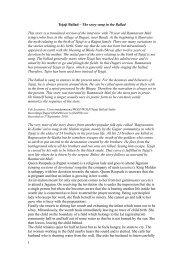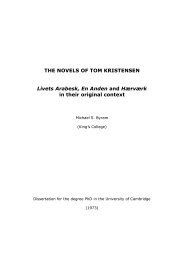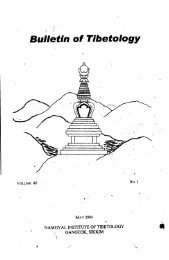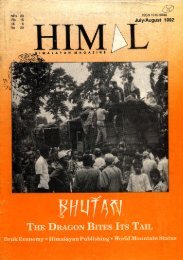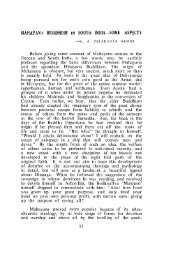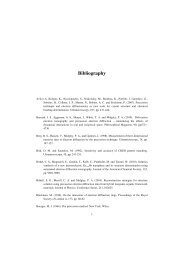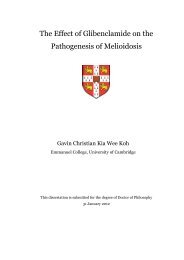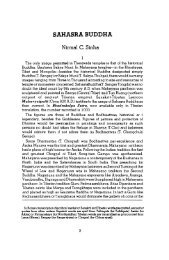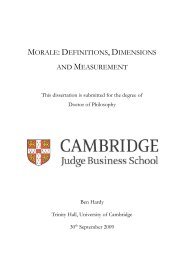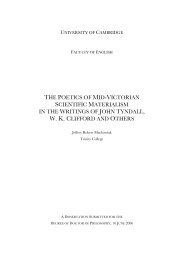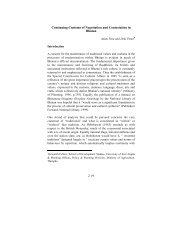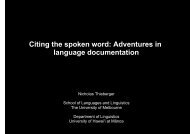The Crusades, the Genoese and the Latin East - DSpace at ...
The Crusades, the Genoese and the Latin East - DSpace at ...
The Crusades, the Genoese and the Latin East - DSpace at ...
Create successful ePaper yourself
Turn your PDF publications into a flip-book with our unique Google optimized e-Paper software.
One practical implic<strong>at</strong>ion of this charter was th<strong>at</strong> wh<strong>at</strong>ever migr<strong>at</strong>ion of <strong>Genoese</strong><br />
to <strong>the</strong><br />
<strong>L<strong>at</strong>in</strong> <strong>East</strong> had occurred since <strong>the</strong> end of <strong>the</strong> First Crusade, by 1168 it reached a certain stability<br />
th<strong>at</strong> made a social <strong>and</strong> geographical distinction possible. <strong>The</strong> 1168 charter may be seen as a<br />
milestone in <strong>the</strong> rel<strong>at</strong>ionship between Genoa <strong>and</strong> <strong>the</strong> <strong>Genoese</strong> settlers in <strong>the</strong> <strong>L<strong>at</strong>in</strong> <strong>East</strong>. It implies<br />
th<strong>at</strong> by 1168 a clear distinction had already formed between <strong>the</strong> two <strong>Genoese</strong> communities, th<strong>at</strong><br />
of Genoa <strong>and</strong> th<strong>at</strong> of Gibelet. By 1168 most who wished to settle in Gibelet must have done so<br />
already <strong>and</strong> <strong>the</strong> migr<strong>at</strong>ion between <strong>the</strong> two Genoas had reached equilibrium. It also suggests th<strong>at</strong><br />
Hugh II, <strong>the</strong> lord of Gibelet, who had descended from <strong>the</strong> Embriaco family saw himself <strong>and</strong> <strong>the</strong><br />
o<strong>the</strong>r <strong>Genoese</strong> settlers as independent <strong>and</strong> not as part of Genoa <strong>and</strong> its society. <strong>The</strong> contract does<br />
not specify, for example, wh<strong>at</strong> was to be <strong>the</strong> st<strong>at</strong>us of a merchant who would arrive in Gibelet <strong>and</strong><br />
might want to stay <strong>the</strong>re for <strong>the</strong> short or long term. At wh<strong>at</strong> stage would such an individual lose<br />
his right for tax-free commerce in Gibelet, or in o<strong>the</strong>r words, when will he no longer be a<br />
<strong>Genoese</strong> merchant <strong>and</strong> become a resident of <strong>the</strong> crusader st<strong>at</strong>es? <strong>The</strong> fact th<strong>at</strong> this issue was not<br />
addressed in <strong>the</strong> contract suggests th<strong>at</strong> it was probably not a conceivable problem.<br />
Ano<strong>the</strong>r aspect of <strong>the</strong> growing rift between Genoa <strong>and</strong> <strong>the</strong> Embriaci in Gibelet involved<br />
<strong>the</strong> family's identity <strong>and</strong> <strong>the</strong> self-definition of its members. Studies thus far have not paid<br />
<strong>at</strong>tention to <strong>the</strong> change in <strong>the</strong> surname of <strong>the</strong> Embriaci who settled in Gibelet. Sometime in <strong>the</strong><br />
1160s <strong>the</strong> Embriaci from Gibelet had ab<strong>and</strong>oned <strong>the</strong>ir <strong>Genoese</strong> surname Embriaco as well as <strong>the</strong><br />
name of Gibelet. Under Hugh II, <strong>the</strong> family reverted to <strong>the</strong> ancient Greek name of Gibelet -<br />
Byblos. Members of <strong>the</strong> family <strong>and</strong> <strong>the</strong> inhabitants of <strong>the</strong> sea-port town began to refer to<br />
<strong>the</strong>mselves as <strong>the</strong> de Biblio. Evidence of this change is found in many documents in which<br />
members of <strong>the</strong> family are mentioned in <strong>the</strong> collection of documents of <strong>the</strong> Order of St John by<br />
Paoli <strong>and</strong> l<strong>at</strong>er in th<strong>at</strong> by Delaville le Roulx 452 In documents from <strong>the</strong> first half of <strong>the</strong> twelfth<br />
century <strong>the</strong> rulers of Gibelet were referred to by <strong>the</strong>ir <strong>Genoese</strong> surname Embriaco. For example,<br />
between 1139 <strong>and</strong> 1157 Guglielmo II Embriaco (<strong>the</strong> fa<strong>the</strong>r of Hugh II) is mentioned six times in<br />
documents of <strong>the</strong> Order: in five out of <strong>the</strong> six cases his name was included in witness lists in<br />
various acts by <strong>the</strong> count of Tripoli. 453<br />
In 1157, however, Guglielmo made a concession of some<br />
possessions in Tripoli to his wife Sanse <strong>and</strong> his son Hugh. In this record, Guglielmo is mentioned<br />
for <strong>the</strong> first time as `Guillelmus Ebriacus, Dei gr<strong>at</strong>ia Gibelleti dominus. '454 <strong>The</strong> lordship of <strong>the</strong><br />
Embriaci was <strong>the</strong>refore recognised in <strong>the</strong> <strong>L<strong>at</strong>in</strong> <strong>East</strong> even when <strong>the</strong> family was supposedly still<br />
452<br />
Sebastiano Paoli (ed. ), Codice diplom<strong>at</strong>ico del sacro militare ordine gerosolimitano, oggi di Malta, 2<br />
vols. (Lucca, 1733-7); J. Delaville le Roulx (ed. ), Cartulaire general de /'Ordre des Hospitaliers de St.<br />
Jean de Jerusalem (1110-1310), 4 vols. (Paris, 1894-1906). <strong>The</strong>se charters include don<strong>at</strong>ion of possessions<br />
to <strong>the</strong> Order in <strong>the</strong> surrounding area of Gibelet. Deschamps<br />
identified <strong>the</strong> loc<strong>at</strong>ion of some villages. Paul<br />
Descahmps, La Defense do comtd de Tripoli, pp. 187-189.<br />
ass Paoli, vol. 1, nos. 18,23; Delaville, vol. 1, nos. 144,160,199<br />
454<br />
Paoli, vol. 1, doc. 33. p. 35<br />
128



